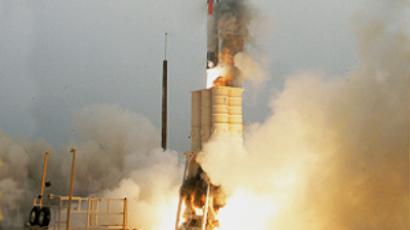The pop culture of Kalashnikov
The Kalashnikov brand has outlived leaders, regimes, and even outgrown the country where it was created – it has become more than just a name for a rifle.
The symbolism of the AK47 has even extended to music – the song “Kalashnikov” by Serb composer Goran Bregovic became a world recognized hit in the nineties and was performed at last year's Eurovision song contest in Serbia.
In addition, three years ago a Columbian musician and peace activist converted an AK into a guitar. One sold for $17, 000 in a fundraiser for landmine victims.
And there is also one Kalashnikov shot that definitely won’t kill you – a shot of Kalashnikov vodka.
The rifle is present on some of the African states’ national emblems. For example, it presently decorates the coat of arms of Zimbabwe and Mozambique.
Moreover, some African families give the name “Kalash” to their newborn children, RIA Novosti news agency reports.
When giving his video addresses, Al-Qaeda terrorist Osama Bin Laden was frequently seen possessing a Kalashnikov.
The rifle is reportedly responsible for approximately 250,000 deaths a year.













